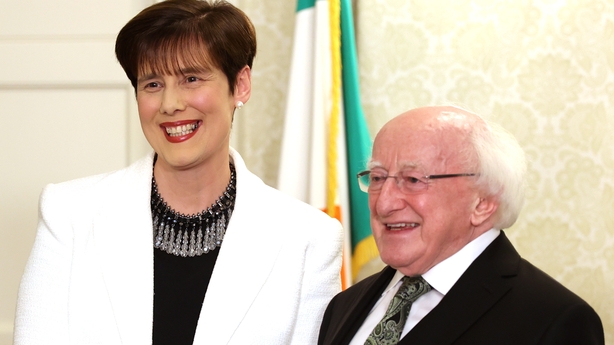It may be a new year, but the challenges anticipated by those working in education are in the main ones that the sector has already become all too familiar with.
Primary
The big issue for the primary school sector will continue to be teacher supply. Schools in the wider Co Dublin area will continue to struggle to fill vacant positions, and sourcing substitute cover for sudden absences will continue to be virtually impossible.
This means that disruption to teaching and learning in many schools will be a feature of 2023 just as it has been in 2022. For children, this means that the educational loss that they suffered as a result of school closures and other disruption during the pandemic will be further compounded.
This is bad news especially for children with additional educational needs. They are once again bearing the brunt as their dedicated teachers are taken from them to fill the place of absent mainstream classroom teachers. The Department of Education says this should not happen, but schools say it is either that or sending children home.
Some school principals worry that the recruitment crisis will actually worsen in 2023, and become an embedded feature of the system.
With high rents and the cost-of-living crisis driving the shortage, it is hard to see short-term solutions, unless radical action is taken by the Department of Education.
One (or two) to watch:
It seems that almost every school in the country is awaiting the construction of additional facilities to allow them to cater for children with additional needs.
The Department of Education has been pushing schools to open badly needed specialised classes for children with disabilities such as autism. It has promised that resources – such as the construction of proper facilities where needed - will follow, but will it be able to deliver?
Minister for Education Norma Foley has also promised to pilot a programme offering in-school mental health supports to children. Schools will be anxious for any such programme to be as wide-reaching as possible and to get underway as soon as possible.
The Irish National Teachers Organisation (INTO) says that after the disruption and trauma caused by the pandemic, it is urgently needed.

Second level
Teacher supply and teacher retention will continue to be the big issues at second level too, most especially in urban areas where rents are high and accommodation is in short supply. That means that many second-level schools in 2023 will continue to struggle to find qualified teachers to teach subjects, and finding substitute teachers at short notice will continue to be all but impossible.
The knock-on effects of all this will continue to be felt; curtailed subject choices in some schools, a lack of teacher continuity or the use of unqualified teachers, with all that can mean for the quality of the student learning experience.
Another knock on effect is the huge additional workload all this is creating for school principals.
(The big) One to watch:
In March, Minister for Education Norma Foley outlined ambitious plans to transform senior cycle education. Controversially, the new plan includes school-based assessment, where teachers mark their own students.
The Minister also announced that from 2024 students will sit paper one of their Irish and English exams at the end of fifth year, despite the fact that a long-awaited examination of senior cycle reform - published in tandem with the minister's announcement - did not recommend this. There is opposition to this proposal too, led by teachers who teach these subjects.
With her recent reappointment as Minister for Education, Norma Foley has consolidated her position. Pushing ahead on this front will unleash strong opposition from the teacher trade unions who are opposed to their members assessing their own students for State certified exams.
Further education
The country's skills shortage is not confined to teachers, its impact is being felt everywhere. Take childcare for instance, the acute shortage of childcare workers is placing great strain on working families and even causing some workers (including anecdotally teachers) to decide to stay at home themselves, because they cannot find anyone to mind their children.

The answer to much of the skills shortage lies in further education, in apprenticeships and in courses offered by the colleges of further education.
There is a new energy around these colleges – formerly the 'Cinderellas’ of the education system, and this impetus is likely to continue and grow throughout 2023. For the first time ever, they have been allocated badly needed dedicated capital infrastructure funding.
Minister for Higher Education, Research, Innovation and Science Simon Harris has already moved on an ambitious plan to knit the further and the higher education together so that learners can progress seamlessly from one sector to the next.
But there is work to be done.
Those working in the sector point to the urgent need to redesign and update the courses they offer; resources need to be put in place to support learners and the universities need to buy into the plan.
Third level
The wish list for the third level sector for 2023 is a long and all too familiar one. Item number one remains as more core funding.
2022 saw the Government confirm a funding gap of €307m per year and commit to closing it over time. Those running Irish universities say 2023 needs to bring a meaningful effort to bridge that gap. They say at least €100m is required if the Government is to honour its commitment.
The biggest challenge facing students meanwhile remains accommodation, the cost-of-living, and the cost of education itself. Many students will pay €1,000 less in fees in 2023, but student leaders say while this once-off reduction is welcome, it does not go far enough.
In 2023, students will continue to be forced into long commutes or to work long hours in low paid jobs simply to make ends meet. They will also continue to be unable to access mental health supports that those working in the sector say are needed more than ever before.
One to watch:
After much discussion of grade inflation at Leaving Certificate level and concern expressed as to its potential impact on entry to third level there were red faces in late 2022 when Higher Education Authority data revealed rampant grade inflation at third level too.
The University of Galway for instance, whose leaders had been to the fore in criticising Leaving Cert marks inflation, recorded a 40% increase in the number of firsts awarded in recent years, although the college claimed the methodology used by the HEA was skewed.
The publication of this data has concentrated minds.
2023 should bring a cooling of marks awarded at Leaving Certificate level, but it will also be interesting to see what happens with marks awarded at third level.







